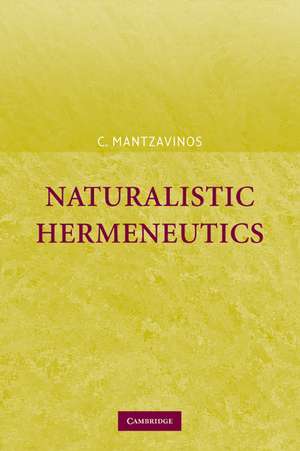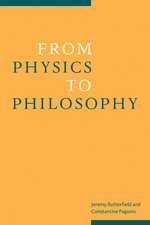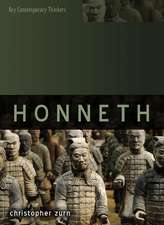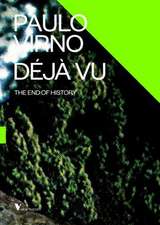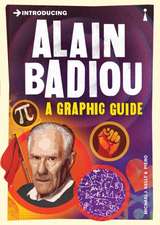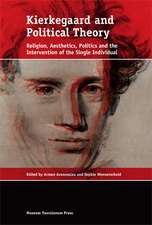Naturalistic Hermeneutics
Autor C. Mantzavinosen Limba Engleză Paperback – 15 apr 2009
| Toate formatele și edițiile | Preț | Express |
|---|---|---|
| Paperback (1) | 312.66 lei 6-8 săpt. | |
| Cambridge University Press – 15 apr 2009 | 312.66 lei 6-8 săpt. | |
| Hardback (1) | 689.93 lei 6-8 săpt. | |
| Cambridge University Press – 13 mar 2005 | 689.93 lei 6-8 săpt. |
Preț: 312.66 lei
Nou
Puncte Express: 469
Preț estimativ în valută:
59.85€ • 65.03$ • 50.30£
59.85€ • 65.03$ • 50.30£
Carte tipărită la comandă
Livrare economică 22 aprilie-06 mai
Preluare comenzi: 021 569.72.76
Specificații
ISBN-13: 9780521109581
ISBN-10: 0521109582
Pagini: 200
Dimensiuni: 152 x 229 x 12 mm
Greutate: 0.3 kg
Editura: Cambridge University Press
Colecția Cambridge University Press
Locul publicării:New York, United States
ISBN-10: 0521109582
Pagini: 200
Dimensiuni: 152 x 229 x 12 mm
Greutate: 0.3 kg
Editura: Cambridge University Press
Colecția Cambridge University Press
Locul publicării:New York, United States
Cuprins
Part I. Hermeneutic Dead-ends: 1. The claim to autonomy of the human sciences; 2. The hermeneutic circle and the paralysis of thought; 3. The claim to universality of philosophical hermeneutics; Part II. Hermeneutic Ways Out: 4. The problematic of meaning: the naturalistic way out; 5. The apprehension of the meaning of actions; 6. The apprehension of the meaning of texts; Epilogue.
Recenzii
'Since the Second World War, German hermeneutic philosophy has achieved great influence, not only in Europe, but also in Anglo-Saxon countries. Mantzavinos has subjected this tradition to an in-depth and sweeping critique, and, beyond that, developed a naturalistic hermeneutics, which is capable of adequately solving problems of meaning. This book is the most important new contribution to the analysis of these problems that I have read thus far. It is indispensable for any seminar on the problems of hermeneutics.' Hans Albert, Heidelberg
'I took pleasure in Mantzavinos' approach to Dilthey, Heidegger and Gadamer: he contrasts what they promise with what they deliver. This paves the way for the constructive part of the book, where the hypothetic-deductive method is applied to explain action and interpret texts. A convincing case is thereby made for the book's main conclusion: that although there are many differences between the social sciences, the humanities and the natural sciences, they all share the use of a method that was first employed in the natural sciences. Hence the title Naturalistic Hermeneutics.' Dagfinn Føllesdal, Oslo and Stanford
'The book is of course something of a polemic: a defense of the unity of the sciences against the objections of humanists and others. Naturalistic Hermeneutics says that social life, including the meaning of events and actions, is quite manageable in a hypothetico-deductive manner. The book will be of great interest to philosophers of the social sciences, as well as social scientists generally.' Ian Jarvie, York University, Toronto
'I took pleasure in Mantzavinos' approach to Dilthey, Heidegger and Gadamer: he contrasts what they promise with what they deliver. This paves the way for the constructive part of the book, where the hypothetic-deductive method is applied to explain action and interpret texts. A convincing case is thereby made for the book's main conclusion: that although there are many differences between the social sciences, the humanities and the natural sciences, they all share the use of a method that was first employed in the natural sciences. Hence the title Naturalistic Hermeneutics.' Dagfinn Føllesdal, Oslo and Stanford
'The book is of course something of a polemic: a defense of the unity of the sciences against the objections of humanists and others. Naturalistic Hermeneutics says that social life, including the meaning of events and actions, is quite manageable in a hypothetico-deductive manner. The book will be of great interest to philosophers of the social sciences, as well as social scientists generally.' Ian Jarvie, York University, Toronto
Descriere
Naturalistic Hermeneutics, first published in 2005, shows how 'meaningful' materials can be dealt with using the hypothetico-deductive method.
